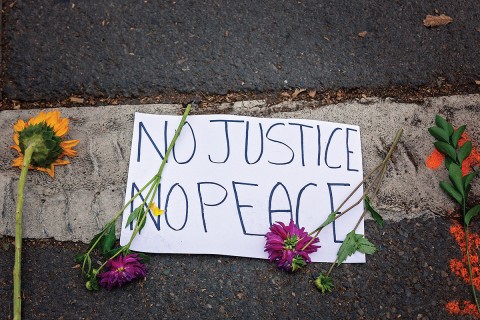Ahmaud Arbery’s lynching begs America to respond
What would it take to stop seeing neighbors as intruders and threats?

Few people know the name Michael Donald. I know that name: he was lynched in my hometown, Mobile, Alabama, in 1981.
In 1981, I was naive enough to want to believe that crimes against black people for merely being black had ended. There were laws, right? There was public acceptance that people just couldn’t do such things anymore, right?
But that year, Donald was killed by a group of white men who admitted that they were out looking for a black person to kill. The local newspaper ran articles about the killing—as well as a picture of Donald, hanging from the tree where his killers left him.




